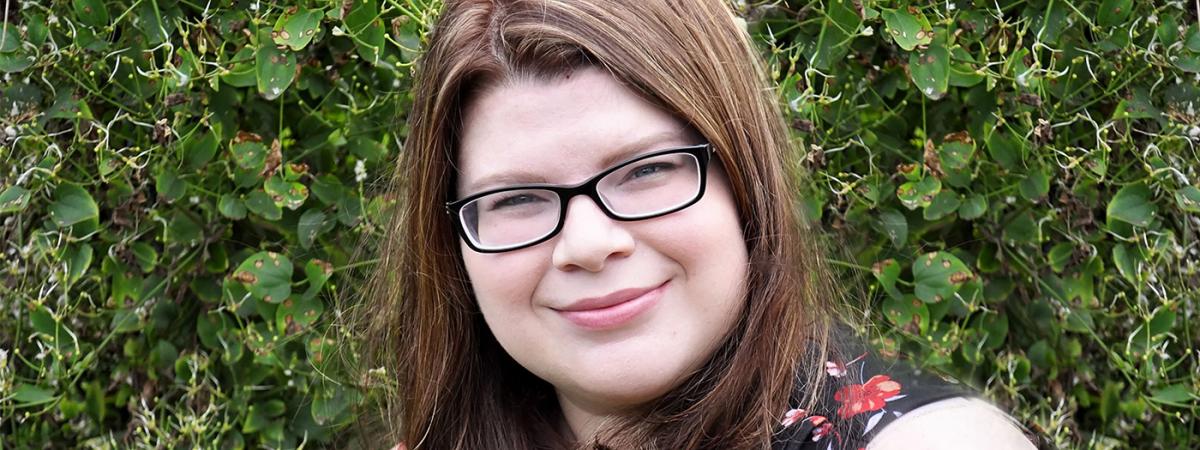Postdoctoral scholar Marie McCausland (GRS ’17, molecular virology) knows a news article saved her life. Just before being induced to give birth, she read the story of a New Jersey nurse who died in 2011 from a case of severe preeclampsia, or pregnancy-induced hypertension.
Four days after giving birth to her son in May 2017, McCausland felt off. She experienced a pounding headache, bloating, elevated blood pressure and chest pains. She thought she might just need some rest. But before laying down for a nap, she remembered the story she had read a few days earlier.
McCausland’s symptoms matched those of Lauren Bloomstein, the mother she read about. So McCausland and her husband—and their 4-day-old baby—rushed to the emergency room.
Even with what McCausland calls “classic” signs of preeclampsia, she said her concerns were dismissed at the hospital. Everything she was experiencing could all be written off as normal postnatal effects, they told her.
But McCausland held strong in her assertions. She knew something she was wrong—attributing this partially to her maternal instincts kicking in.
She insisted the doctors continue checking her blood pressure, which remained high even after being placed on medication. Eventually, after consulting with an OB/GYN who confirmed her symptoms pointed to preeclampsia, she was transferred to another hospital and treated.
“I was heading in a direction where, if I hadn’t been taken care of, I would have died,” McCausland, a postdoctoral scholar in molecular virology, said. “I took photos of my son, thinking: ‘This is all he’s going to have left of me. Like, this is it. I’m going to die. My 4-day-old son is not going to have a mom.’”
Becoming an advocate
A week after her experience, McCausland shared her experience on Reddit. The site was where she'd first read the article about Bloomstein, a piece that was produced through a collaboration between NPR and ProPublica as part of their Lost Mothers series. After reading McCausland’s story, a high school friend recognized her own preeclampsia symptoms and went to the hospital. She credits McCausland with helping save her life. “There aren’t words to express how good it is to know that you helped save someone’s life just by sharing your story,” McCausland said. So she kept sharing. McCausland was featured in another story in the Lost Mothers series. The series went on to win the Goldsmith Prize for Investigative Reporting from the Shorenstein Center on Media, Politics and Public Policy at Harvard Kennedy School. As McCausland’s story continued to spread, more people began reaching out to her. The experience has transformed her into an advocate. She is set to become a spokesperson on maternal health for Merck for Mothers, through which she will travel the country to speak at events, share her experience and advocate for mothers. She also has told her story during speaking engagements at the March for Moms and the Champions for Change Summit. McCausland is also pushing for a shift in maternal care on the local level. At the hospital system she visited, she’s helped implement several changes to prevent women from going through what she did. One of the most notable changes is a fact sheet from the Association of Women's Health, Obstetric and Neonatal Nurses that all new mothers receive describing symptoms they should look out for that might point to conditions such as preeclampsia, hemorrhaging, cardiac events and postpartum depression. McCausland hopes the fact sheets will help women notice their symptoms so they can get help sooner. “So often, women put themselves last and it’s so important—especially in those first six weeks after you have the baby—to remember that yes, you have a newborn to take care of, but if you don’t take care of yourself, you may leave your newborn,” McCausland said. “You need to remember to put yourself, if not first, at least higher—and certainly not last.”Bringing the conversation to CWRU
Just about a year and a half after giving birth to her son, McCausland is organizing “The Fourth Trimester: Surviving and Thriving after Baby,” a symposium for the community to learn more about the postpartum experience. The symposium will be held Thursday, Nov. 8, from 8:30 a.m. to noon in Thwing Center ballroom. During the symposium, McCausland will discuss her experience with postpartum preeclampsia. The symposium also will address several topics, including:- Signs and symptoms to look out for postpartum;
- Racial disparities in health care;
- FMLA leave and CWRU-specific family leave policies;
- Work/life balance; and
- Perinatal depression.





